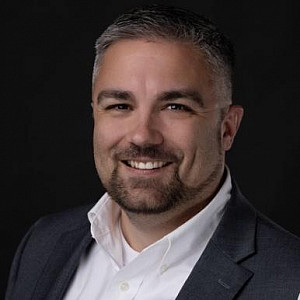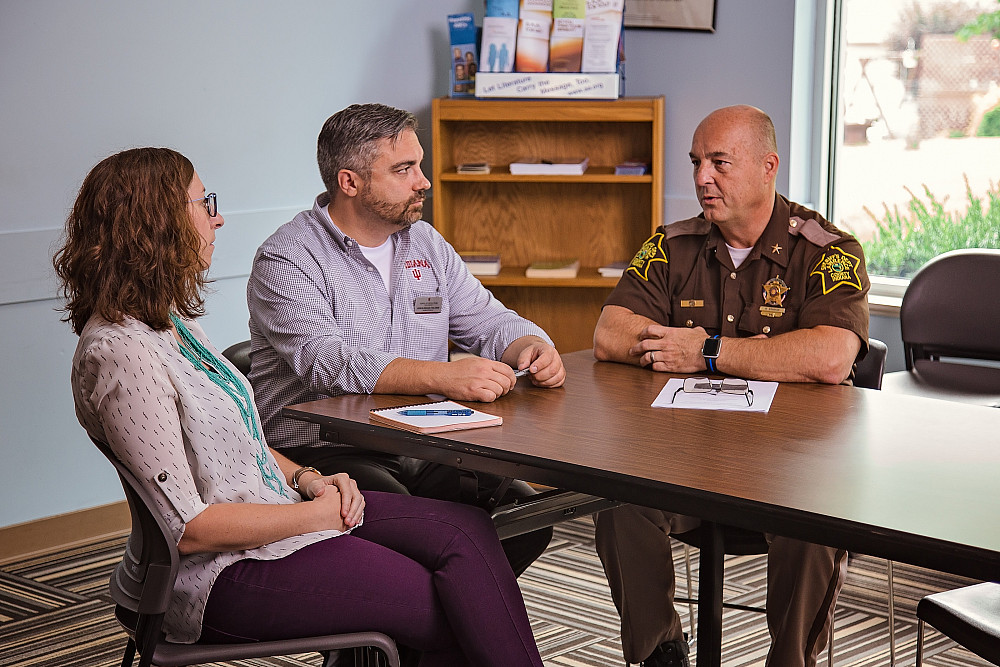From the Desk: Collaborations aid mental health efforts in rural communities
By John Keesler
May 05, 2025
As an associate professor in the School of Social Work, I teach graduate-level coursework in the mental health and addictions focus area. My scholarship centers on improving quality of life and addressing disparities through community-based research.

Madeleine Gonin from the Center for Innovative Teaching and Learning encouraged me to join the Center for Rural Engagement’s Sustaining Hoosier Communities program in 2017. This initiative partners with one rural Indiana county for one to two years, connecting community-identified needs with faculty and students. Lawrence County, where I live, was selected as the program’s inaugural partner.
Several leaders in Lawrence County sought to better understand local perspectives regarding mental health and substance use — an ideal fit with my graduate courses. It created a win-win: Students applied their learning to real-world challenges (e.g., insufficient mental health resources and community stigma) while engaging in meaningful community service.
This project became a launchpad for further rural collaborations and deeper partnership with the Center for Rural Engagement. It also opened the door for conversations with the IU Interprofessional Practice and Education Center that resulted in subsequent opportunities for collaboration in Bloomington and Indianapolis, engaging with other faculty and students.
Over time, the Center for Rural Engagement has become an integral part of my scholarship, often with one project leading to another. For instance, Todd Burkhardt, director of campus partnerships with the center, invited me to conduct a summer pilot several years ago to assess the feasibility of telemental health services via rural libraries. I teamed up with David Wilkerson from the IU Office of e-Social Work Education and Practice to develop and launch the project with graduate social work students. The project not only secured funding but gained visibility through the lieutenant governor’s Indiana Mental Health Roundtable, leading to further opportunities, like exploring faith-based mental health initiatives.

The need is clear:
- Over 20% of Indiana adults experience mental illness each year.
- Nearly 47% of high schoolers report persistent sadness or hopelessness; over 20% have considered suicide.
- All 92 counties in Indiana face mental health workforce shortages.
- Barriers like stigma, transportation, broadband access and system complexity make care even harder to access.
- Untreated mental illness costs Indiana about $4.2 billion annually.
To address this, the Indiana Behavioral Health Commission made multiple recommendations, including public education, workforce investment and cross-sector collaboration.
Last summer, the Center for Rural Engagement approached me to co-develop a Lilly Endowment grant proposal focused on improving rural well-being through faith communities. I was all in — given my longstanding partnership with the Center for Rural Engagement, ongoing work with Wilkerson on this very topic, the School of Social Work’s strengths and my personal background working with faith groups before joining IU.
The center led the proposal, weaving in multiple initiatives to support well-being through church partnerships. Wilkerson and I proposed to develop a free, self-paced, online curriculum for faith leaders to better support mental health in their congregations. The content will be developed in partnership with academics, community practitioners and rural faith leaders. Our focus: make it relevant, feasible and accessible.
The grant was awarded, and while we’re in the early stages, the work is energizing. This initiative taps into an often-overlooked resource — churches — to bolster rural mental health. Together, we’re helping shape a healthier future for Hoosiers.
John Keesler is an assistant professor in the School of Social Work at Indiana University Bloomington. He conducts community-based research focusing on adversity/trauma, trauma-informed care and quality of life, with an emphasis on these substantive areas in intellectual/developmental disability service organizations.